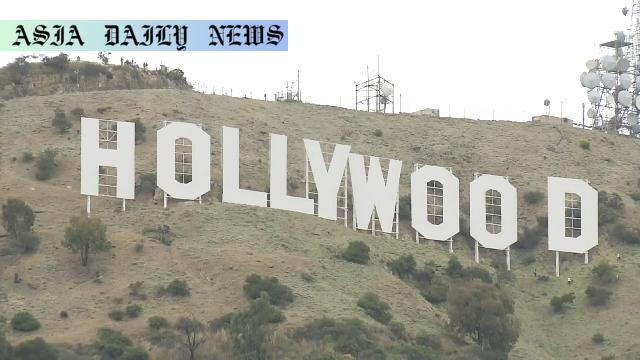Tariff: US President Donald Trump announces a 100 percent tariff on foreign movies to revive America’s ‘dying’ film industry.
Donald Trump has announced a 100% tariff on foreign-produced films.
The move aims to protect the ‘dying’ American movie industry.
Experts question the feasibility of implementing tariffs on films.
US Commerce Department and Trade Representative are tasked with the initiative.

Trump’s 100% Tariff on Foreign Films: A Major Policy Shift
On May 4th, US President Donald Trump announced a groundbreaking tariff on foreign-produced movies, mandating a 100 percent tax as part of his vision to rejuvenate the American movie industry. In a fiery statement made via social media, Trump expressed his dissatisfaction with how foreign incentives were undermining the US’s creative sector, pushing American filmmakers towards international production hubs. He labeled this exodus as not only a cultural concern but also a national security issue. This decision has drawn sharp reactions from film industry insiders, analysts, and international policymakers.
The tariff proposal, though ambitious in its intention to protect American filmmakers, also raises significant questions surrounding its implementation. As CNN aptly pointed out, films are categorized as intellectual property rather than physical goods, implying that traditional tariff mechanisms may not apply. Legal, economic, and practical challenges await the administration as they try to turn the president’s vision into a reality, creating an air of uncertainty in the global film trade.
Reviving America’s Domestic Film Industry Amid Global Competition
The rationale behind Trump’s tariff plan stems from growing concerns over the perceived decline of the domestic movie industry. With other countries offering attractive rebates and logistical advantages to lure US studios abroad, major cities such as Los Angeles and New York reportedly face declining production levels. Trump’s statement, infused with his ‘America First’ ideology, suggests an intent to reverse this trend and rebrand the United States as a global film hub. By introducing a steep tax, the administration seeks to dissuade reliance on foreign production while urging studios to remain loyal to domestic resources.
The issue, however, extends beyond taxation. The American film industry has faced challenges, including reduced theatrical revenues, competition from streaming platforms, and global shifts in entertainment consumption. Although protectionist measures like tariffs might offer short-term benefits for US studios, the long-term restoration of the film industry demands innovation, policy reforms, and support for technological adaptation.
Global Reaction and Potential Trade Conflicts
Trump’s tariff declaration is likely to aggravate diplomatic tensions, particularly with countries known for their dynamic film industries, such as Canada, India, France, and the UK. Adding such measures into an already competitive global market could lead to retaliation, potentially escalating trade wars or hindering cultural exchange efforts. The lack of clarity regarding the specifics of the policy only intensifies apprehensions among stakeholders. For international filmmakers and distributors, access to the lucrative American box office may face considerable disruption, prompting adjustments in distribution strategies worldwide.
While the tariffs aim to revive domestic production, an unintended consequence might be a decrease in global collaboration—a hallmark of modern filmmaking. Today more than ever, international projects involve mixed talent, complex funding structures, and global storytelling that transcends borders. Restricting external influence may hinder the rich diversity that audiences worldwide have grown accustomed to in cinema.
Commentary
The Trade-Offs of Trump’s Protectionist Film Tariff
President Trump’s decision to enact a 100 percent tariff on foreign-produced movies represents a bold yet controversial approach to protecting the nation’s domestic film industry. While the intent to bolster local film production resonates with his administration’s ‘America First’ ethos, this policy carries a range of economic, cultural, and diplomatic implications. The move signifies a turning point in the ongoing discourse about globalization and national sovereignty in creative industries.
The Practicality of a Film Tariff
One of the immediate challenges with Trump’s announcement lies in its feasibility. With films categorized under intellectual property rather than traditional goods, enforcing a tariff in a way that elevates American producers without stifling distribution chains could become a logistical nightmare. Moreover, imposing such restrictive measures risks alienating international trade partners. Could this alienation complicate existing agreements within the World Trade Organization, where treaties often exclude cultural goods from standard trade restrictions?
Unintended Consequences on Artistic Collaboration
Another aspect worth addressing is the potential erosion of international cooperation in the arts. The movie industry, by its very nature, thrives on diversity. Joint productions between American and international teams often yield some of the most compelling cinematic experiences. Policies that curb international involvement may stifle the cultural richness audiences have come to expect, unintentionally creating an isolated market less appealing in the global scenario.


